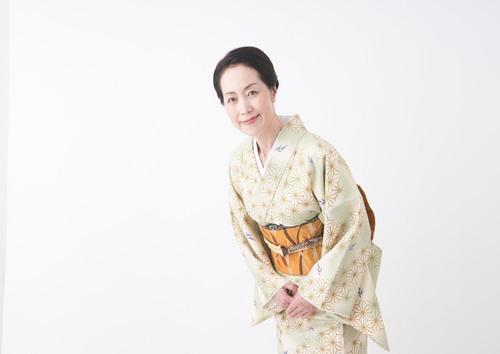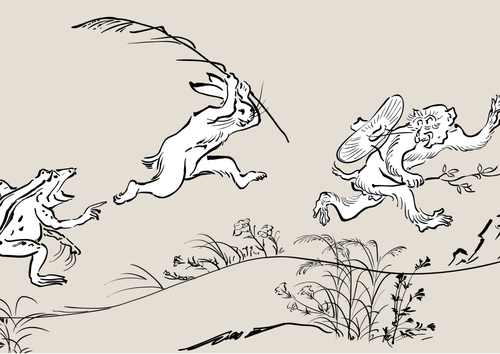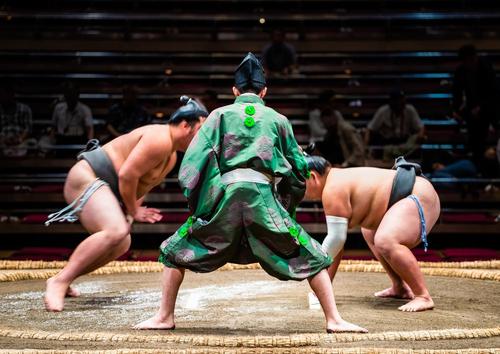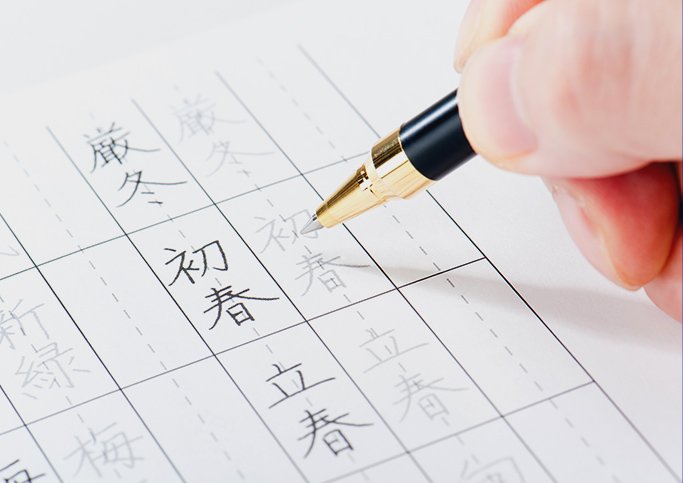
opposite
shikashi/daga/dakedo… How to say linking words of contrast in Japanese
6/14/2021
In Japanese communication, there are a number of linking words for saying things that are contrary to what has already been said. Get to know a variety of contrast conjunctions so you can use them in actual Japanese conversations.
1. しかし(shikashi)
“しかし” (shikashi) is a contrast conjunction that connects sentences. “しかし” (shikashi) is used to say the opposite of the previous sentence, and it can be used both in conversation and in sentences. The speaker's subjectivity is stronger than other contrast conjunctions.
Example
私は朝、ごはんを食べます。しかし、妻はパンを食べます。
Watashi wa asa, gohan wo tabemasu. Tsuma wa pan wo tabemasu.
I eat breakfast in the morning. But my wife eats bread.
Example
日本酒は和食に合う。しかし、フレンチにも合う。
Nihonshu wa washoku ni au. Shikashi, furenchi ni mo au.
Sake goes well with Japanese food. But it also goes well with French food.
Example
頭が痛い。しかし、会社に行かなければならない。
Atama ga itai. Shikashi, kaisha ni ikanakereba naranai.
My head hurts. But I have to go to the company.
Example
彼女とデートの待ち合わせをした。しかし、彼女は来なかった。
Kanojo to dēto no machiawase wo shita. Shikashi, kanojo wa konakatta.
I met up with her for a date. But she didn't come.
2. だが(daga)
“だが” (daga), like “しかし” (shikashi), is also a contrast conjunction that connects the previous sentence to the one before it. “だが” (daga) is often used in sentences, but it can also be used in conversation. When “だが” (daga) is used in conversation, it is mostly used by men.
Example
日本酒は和食に合う。だが、中華には合わない。
Nihonshu wa washoku ni au. Daga, chūka ni wa awanai
Sake goes well with Japanese food. But it doesn't go with Chinese food.
Example
雨の予報だったので傘を持って家を出た。だが、全く降らなかった。
Ame no yohō datta node kasa wo motte ie wo deta. Daga, mattaku furanakatta.
The weather forecast said it was going to rain, so I left home with an umbrella. But it didn't rain at all.
Example
私たちは試合に負けた。だが私たちはベストを尽くした。
Watashitachi wa shiai ni maketa. Daga watashitachi wa besuto wo tsukushita.
We lost the game. But we did our best.
Example
寝坊した。だが遅刻はしなかった。
Nebō shita. Daga chikoku wa shinakatta.
I overslept. But I wasn't late.
[日本のことが気になる?一緒に日本語を学びませんか?]
3. だけど(も)(dakedo(mo))
The word “だけど” (dakedo) is also a conjunction between sentences and is used to say the opposite of the previous sentence. It is softer than “しかし” (shikashi) and “だが” (daga). It can also be said as “だけども” (dakedomo).
Example
僕は君を愛している。だけど君とは結婚できない。
Boku wa kimi wo aishi teiru. Dakedo kimi to wa kekkon dekinai.
I love you. But I can't marry you.
Example
彼は優しい。だけど怒るととても怖い。
Kare wa yasashī. Dakedo okoru to totemo kowai.
He is kind. But when he gets angry, I'm very scared.
Example
このレストランは人気がある。だけど私はあまり好きではない。
Kono resutoran wa ninki ga aru. Dakedo watashi wa amari sukide wa nai.
This restaurant is popular. But I don't like it very much.
4. でも(demo)
The word “でも” (demo) is a conjunction that connects two sentences, and is used to affirm the previous statement while saying the opposite. Like “だけど” (dakedo), “でも” (demo) is used in casual situations.
Example
彼は一生懸命勉強した。でも試験に合格できなかった。
Kare wa isshōkenmei benkyō shita. Demo shiken ni gōkaku dekinakatta.
He studied hard. But he couldn't pass the exam.
Example
仕事を辞めたい。でもお金を稼ぐためには辞められない。
Shigoto wo yametai. Demo okane wo kasegu tame ni wa yamerarenai.
I want to quit the job. But I can't quit to make money.
Example
夫が不倫をした。でも私は許した。
Otto ga furin wo shita. Demo watashi wa yurushita.
My husband had an affair. But I forgave him.
5. のに(noni)
The word “のに” (noni) is used to say the opposite of what would be expected from the previous statement. It contains the subjective feelings of the speaker.
Example
彼はもう30歳なのに、やることが子どもみたいだ。
Kare wa mō 30-sai nanoni, yaru koto ga kodomo mitaida.
He's 30 years old, but he's like a kid.
Example
旅行を楽しみにしていたのに、急な仕事で行けなかった。
Ryokō wo tanoshimi ni shite ita no ni, kyūna shigoto de ikenakatta.
I was looking forward to the trip, but I couldn't go because of a sudden job.
Example
彼は優しくてお金もたくさん持っているのに、なかなか恋人ができない。
Kare wa yasashikute okane mo takusan motte iru no ni, nakanaka koibito ga dekinai.
He is kind and has a lot of money, but he can't find a girlfriend.
Example
アメリカに留学していたのに、英語が全く話せない。
Amerika ni ryūgaku shite ita no ni, eigo ga mattaku hanasenai.
I was studying abroad in the United States, but I can't speak English at all.
In Japanese, there are many ways to say contrast conjunctions. If you are interested in using contrast conjunctions in Japanese, why don't you study Japanese more and learn to speak various expressions in Japanese?
If you want to study Japanese right away, why don't you sign up for a free membership to Human Academy Japanese Language School Plus. You can experience practical Japanese lessons by experienced teachers for free.
CATEGORIES
FEATURED TAGS
RECOMMENDATION
-
 報BUSINESS TERMS
報BUSINESS TERMSWhat is ”Ho-Ren-So”, one of the basic manners when working in Japan?
10/30/2020
-
 伝WORDS & GRAMMAR
伝WORDS & GRAMMARWhat is easy Japanese?
10/30/2020
-
 礼MANNERS
礼MANNERSJapanese greeting customs and origins. What are the greetings from other countries?
10/30/2020
-
 戯COMIC & GAME
戯COMIC & GAMEThe roots of animation and manga? Introducing bird and beast caricatures
10/30/2020
-
 戦SPORTS
戦SPORTSThe history of sumo goes back to the mythical world! ?? Transition from myth to modern times
10/30/2020
LET’S PLAY
KARUTA!
Do you know the meaning of this...
NEXT...
FURTHER EXPLORATION
INTERESTED
IN JAPAN?
WHY DON’T YOU
LEARN JAPANESE WITH US?
START LEARNING
JAPANESE
WITH HUMAN ACADEMY!
ONE OF
THE MOST POPULAR
JAPANESE
LANGUAGE SCHOOLS
JAPANESE
LANGUAGE SCHOOL
OFFERING EXCELLENT
DETAILED LESSONS

ONLINE SCHOOL
- Learn with your classmates from all over the world
- Variety of Courses for All Needs
- FREE Trial Lesson available

TOKYO, OSAKA
- Offer the Best Curriculum for You
- Make New Japanese Learning Friends
- Many Opportunities to Practice Japanese
MAKE FURTHER
STEPS
WITH HUMAN ACADEMY!
ONE OF
THE MOST POPULAR
JAPANESE
LANGUAGE SCHOOLS
JAPANESE
LANGUAGE SCHOOL
PRODUCING MANY
JLPT N1 CERTIFIED
STUDENTS!

ONLINE SCHOOL
- Learn with your classmates from all over the world
- Variety of Courses for All Needs
- FREE Trial Lesson available

TOKYO, OSAKA
- Support Your Higher Goal of Japanese Learning
- Perfect Environment for Japanese Learners
- Learn with Your New Japanese Study Mates
























